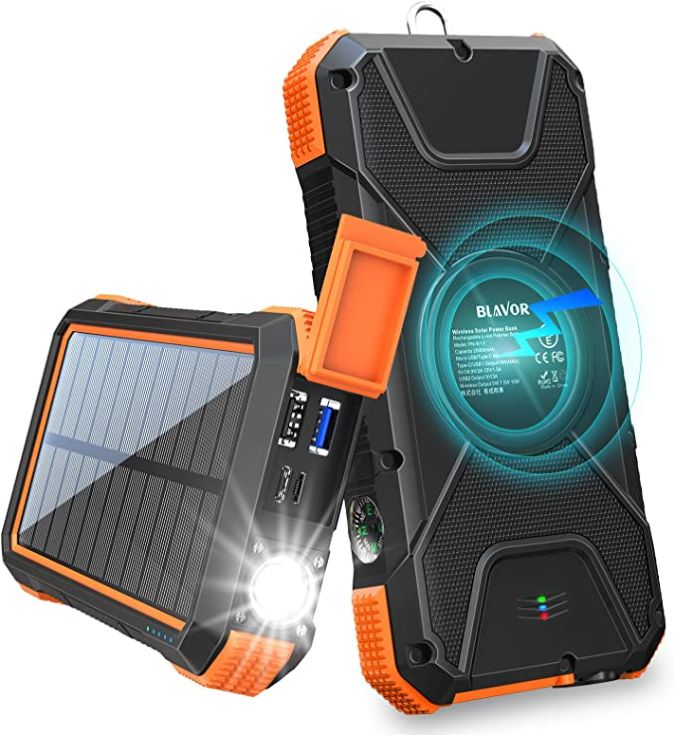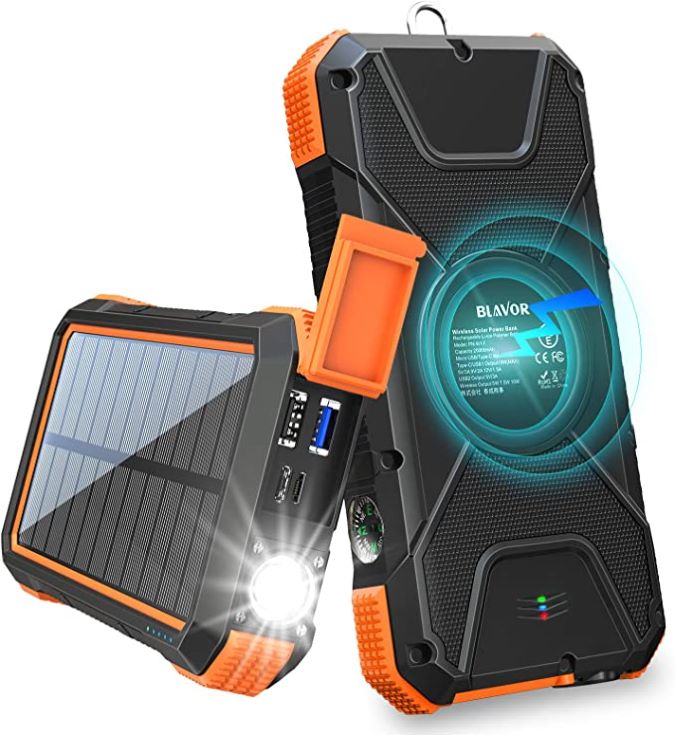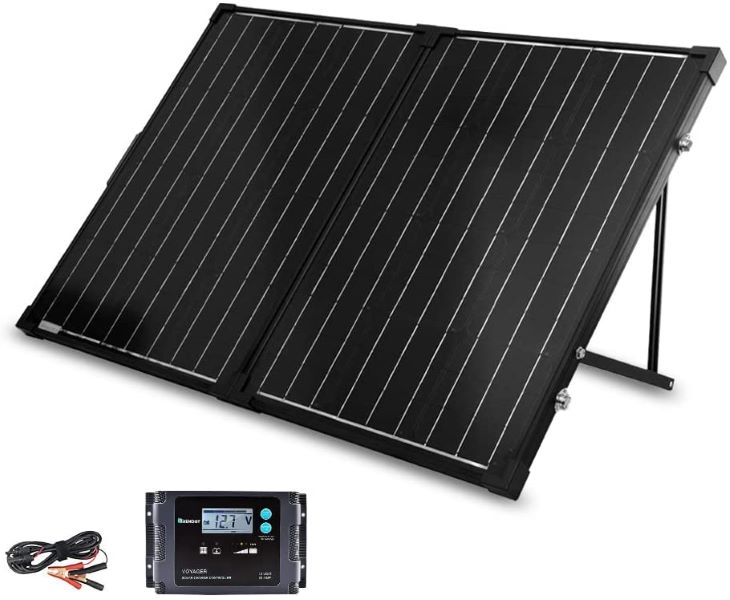
Portable Solar Energy Systems for Home & On the Go
Solar panels aren’t just found on rooftops and solar farms anymore — there are now numerous portable solar modules on the market for camping, RVs, and emergency preparedness. You can buy solar chargers with a small solar panel and battery to charge devices, larger DIY kits that can power an RV, and solar generators for backup power during outages.
Portable solar systems are ideal when it is difficult or impossible to access the power grid. They can fulfill a similar purpose to a backup generator, but without consuming fossil fuels or making noise. Let’s examine the different categories of portable solar systems and how they compare to rooftop arrays.
This article contains affiliate links. If you purchase an item through one of these links, we receive a small commission that helps fund our Recycling Directory.
Types of Portable Solar Systems
You have several different kinds of portable solar systems to choose from; each serves a different purpose.
Solar-Powered Portable Battery Charger
These units contain solar cells and a battery. They often have a flashlight and perhaps a compass and can also charge using a power cable. There are USB ports on these solar chargers for powering cell phones and other electronic devices. Some solar power banks are capable of just charging a cell phone a couple of times and start at around $30, while others have a larger capacity and are more costly.

Portable Solar Panel Kits
These setups contain one or more portable solar panels, a battery bank, and a charge controller that regulates how the batteries charge. In addition, many portable solar panels include a kickstand or frame to prop up the PV panel at an ideal angle. Typically, the solar panels have high-efficiency monocrystalline solar cells to generate more electricity in a limited space when compared to polycrystalline solar panels.

Solar-Powered Generators
Like fossil fuel-powered generators, solar panel generators supply emergency power during grid outages. In recent years, many different models have hit the market, giving shoppers more options for having some power during blackouts. Sometimes, solar generators are sold in kits that include the solar panels, and other times the panels are sold separately.
It’s a good idea to figure out what loads you will want to power so you can size the solar generator accordingly. For example, you might want to be able to plug in the refrigerator sometimes to prevent food from spoiling. Unfortunately, the batteries start to degrade a bit over time and cannot hold as much of their original capacity, so plan accordingly. Some solar generators are relatively light, making them more portable.
Here’s a helpful video guide to help you find the right solar-powered generator for you.
[embedded content]
Advantages of Portable Solar Systems
Let’s explore the positive aspects of solar panels for mobile applications.
Smaller Upfront Cost
Numerous DIY solar kits and camping solar panels are available on the market. Although they range in price from under $30 to thousands, they usually cost significantly less than a rooftop solar system. Therefore, it’s an excellent way for people to start using solar energy without investing $15,000 or more for solar panels, an inverter, and labor. In addition, because the solar panels aren’t attached to the roof or connected to the electric panel, you will not need professional solar installers.
In some cases, financing is available through the retailer. This helps make these products available to more people, including people that don’t own their homes, but there are likely interest charges.
Portable Solar Power
These solar products often contain batteries that can charge with solar or sometimes a wall outlet as well. This means you would have electricity while on a boat, camping trip, or even during power outages. Portable solar products are also excellent for disaster preparedness because they do not rely on the electrical grid.
In other cases, grid power is available but might be very expensive. For example, some campgrounds charge a lot for electricity, and RVers might be able to save money by using a portable solar setup instead, or they might have greater flexibility on where to park if they don’t need to be parked near electrical outlets.

Disadvantages of Portable Solar Systems
Although they are great for power on the go, these systems do not provide all the benefits of a rooftop solar system.
Solar System Durability
Rooftop solar systems are designed to last 25 or more years, and they commonly include long-lasting warranties. The solar panels usually have frames and a mounting system that securely attaches them to the roof. By contrast, portable solar panels are commonly propped up using a kickstand and are often water resistant but can run into problems in heavy rains. Likewise, because they aren’t attached, heavy winds can damage the system.
Because they are less durable, portable solar modules usually have shorter warranties than roof-mounted solar systems. For example, the Bluetti PV350 Solar Panel includes a 2-year warranty, but the Renogy 100W Foldable Solar Suitcase with Voyager has a 10-year warranty.
May Not Qualify for Solar Tax Credit
There is a federal solar tax credit available for residential and commercial solar energy systems. However, portable solar systems qualify for the solar tax credit only occasionally. So, if you have an RV that is a primary or secondary residence and purchase a portable solar system for it, there’s a good chance you can apply the tax credit.
Even though there are many portable solar power options available, they might not be the ideal approach for everyone, and they serve a different purpose than a home solar panel system. A rooftop solar system or community solar subscription is a better option if you want to lower your home electric bill significantly. If you want emergency power or solar electricity on the go, a portable system is ideal.
Before purchasing a system, consider your energy needs and the pros and cons of each option. Figure out what electric loads you will have and make sure the solar battery can power them for the desired length of time. If you will use the portable solar system for camping or hiking trips, make sure it is light enough to be convenient.
Feature image: MarekPhotoDesign.com – stock.adobe.com